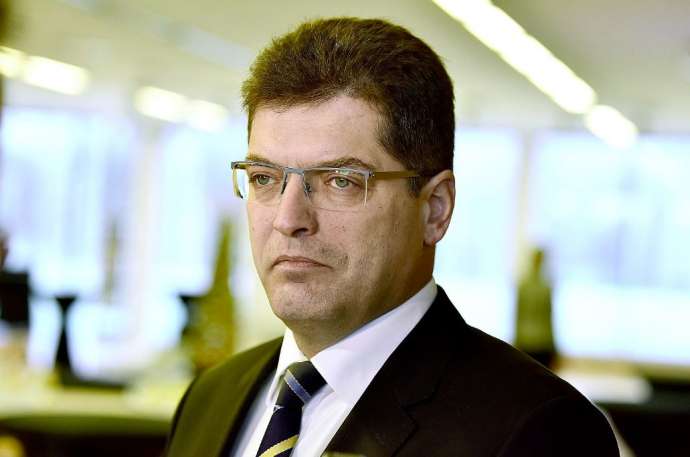STA, 10 September - Janez Lenarčič, the Slovenian EU commissioner-designate, has been assigned the portfolio of crisis management in the next European Commission, as President-elect Ursula von der Leyen announced the distribution of posts. First political reactions indicate the majority perceive the portfolio as lightweight.
As Von der Leyen announced, the job assigned to Lenarčič would correspond to the portfolio of humanitarian aid and crisis management in the outgoing commission, which has been the responsibility of the Cypriot Hristos Stilianides.
Lenarčič, so far Slovenia's ambassador to the EU, said that crisis management was a significant but demanding field of the EU's work, involving the saving of lives and helping people in need.
The department he will head is in charge of European civil protection and humanitarian aid, as part of which Lenarčič will have the role of the European coordinator for rapid response. He will be supported by the directorate general for European Civil Protection and Humanitarian Aid Operations (ECHO).
"The number of people in need of help keeps increasing world-wide due to the consequences of ever more dramatic climate change and violent conflicts," Lenarčič said, adding that growing humanitarian needs should be matched by proper and effectively applied funding.
He believes that the portfolio he was entrusted with addresses a vital part of the EU's response to topical global challenges, which call for sustainable, coordinated and innovative action by the EU and member countries.
Lenarčič understands the portfolio assignment as an acknowledgement of Slovenia's "strong tradition in providing humanitarian aid and civil protection".
But first political reactions indicate the majority perceive the portfolio as lightweight compared to other departments in the new Commission, even as they acknowledge that this is an important area for the EU.
The coalition Marjan Šarec List (LMŠ) and Social Democrats (SD) were the only parties to label the portfolio as an important department. Other parties, even in the ranks of the coalition, were more critical.
Analysts provided a range of views about the relative importance of the department, with one saying this was not a department with political weight, and other that "Slovenia's role in Brussels is small" due to a lack of strategic policy.
Among the eight Slovenian MEPs, the news invited mixed reactions, with some members of the EPP finding the portfolio not to be one of the key ones, as it was one of the last to be announced by the Commission president-elect.
The four MEPs from the ranks of the coalition Marjan Šarec List (LMŠ) and Social Democrats (SD) welcomed the pick as a serious and demanding portfolio, saying that crisis management was an exceptionally important field.
Some MEPs from the EPP meanwhile said that the portfolio does not bring value added, and that it was obviously not a key one, while others believe that it is an exceptional opportunity for Slovenia, a demanding job involving a lot of responsibility.
Pm Marjan Šarec said the portfolio was good. "Crisis management includes humanitarian aid, civil protection - helping people in accidents and during crises. Slovenia is famous for having a good relief and protection system," he said.
"It reacts very well in crises that hit the population and others learn from us. I am confident the Slovenian commissioner will be able to contribute a lot in this field," Šarec added in a statement while visiting Russia.
Defence Minister Karl Erjavec, whose department covers civil protection and disaster relief, similarly said the Lenarčič portfolio was "important for Slovenia and the EU".
The commissioners-designate will undergo hearings before the European Parliamentary committees between 30 September and 8 October, after which the plenary is to take a vote on the line-up as a whole at a session running between 21 and 24 October.
Lenarčič said he would use his time over the next few weeks to prepare thoroughly for the hearing.
Five years ago, Slovenia's original commissioner nominee Alenka Bratušek failed to pass the committee hearing, so she withdrew her bid. The government then nominated Violeta Bulc, who went on to become transport commissioner.







